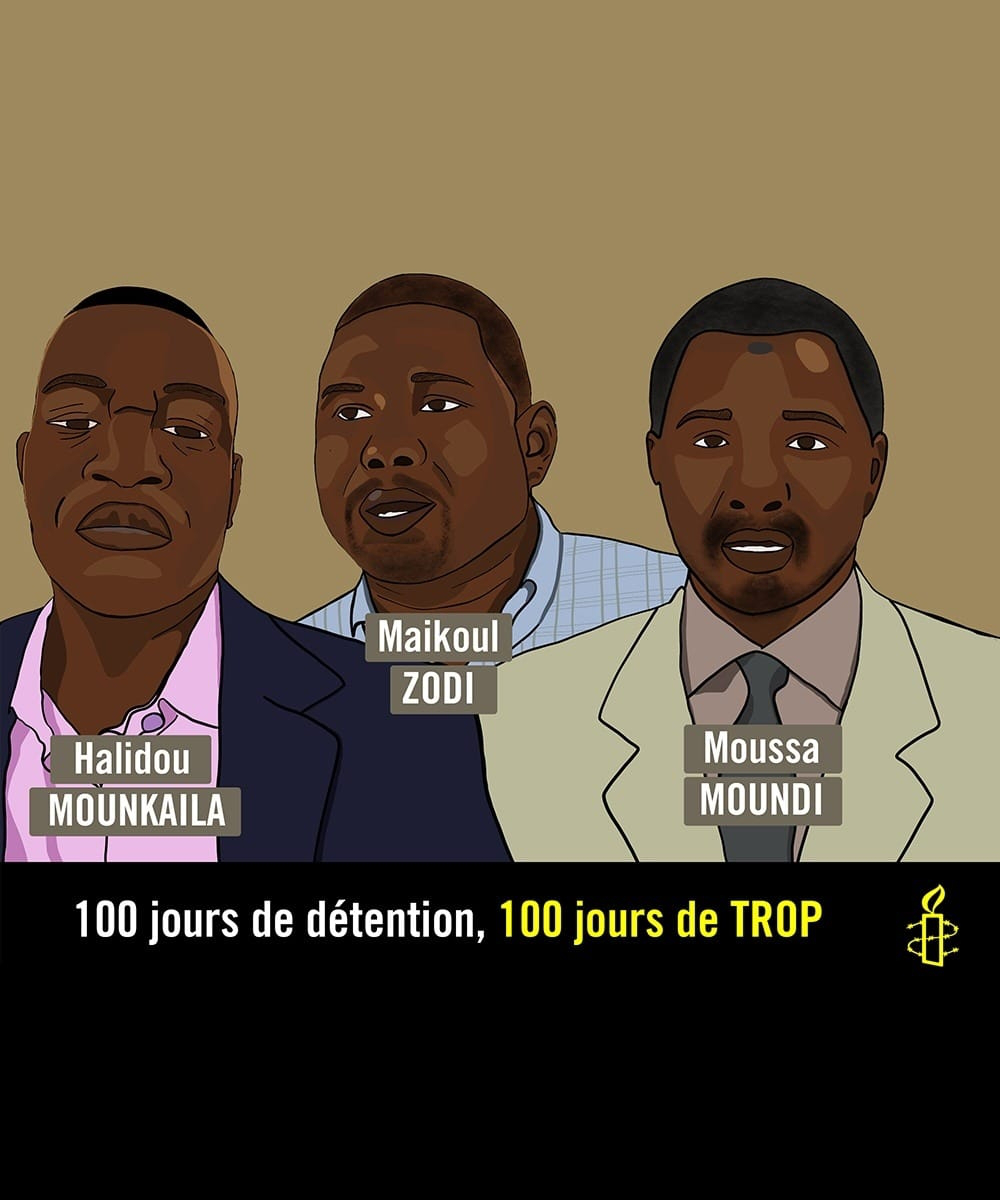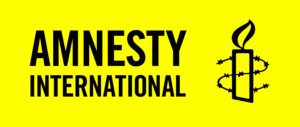Niger: 100-day detention of three activists highlights deterioration of freedom of expression
News

This article was prepared by Amnesty International (here), which allowed us to publish it on the PWYP site. We invite you to take action using this letter, which we have prepared with Amnesty, as a template for reaching out to relevant local and regional contacts.
 Authorities in Niger should drop trumped-up charges and immediately release three human rights defenders who have been languishing in jail for 100 days after demanding an investigation into the alleged misuse of funds by the Ministry of Defense, Amnesty International said today.
Authorities in Niger should drop trumped-up charges and immediately release three human rights defenders who have been languishing in jail for 100 days after demanding an investigation into the alleged misuse of funds by the Ministry of Defense, Amnesty International said today.
Activists Moudi Moussa, Halidou Mounkaila and Maïkoul Zodi were arrested on 15 March on charges of organizing an unauthorized gathering, complicity in damaging public property, arson and manslaughter, following a protest they organized in the capital Niamey. They organized it to call for an investigation into the allegations of the misuse of funds revealed by an audit of the contracts at the Ministry of Defense in February, and to denounce the intrusion of the executive into this process.
For nearly two years, journalists and human rights activists in Niger have been the target of repeated arbitrary arrests as a result of the authorities’ increasing clampdown on dissenting voices. – Samira Daoud, Amnesty International West and Central Africa Director.
The protest was violently repressed by the security forces, leading to their arrests along with four other civil society members. However, the others were provisionally released on 30 April. Moudi Moussa, Halidou Mounkaila and Maikoul Zodi are the only ones behind bars.
“For nearly two years, journalists and human rights activists in Niger have been the target of repeated arbitrary arrests as a result of the authorities’ increasing clampdown on dissenting voices,” said Samira Daoud, Amnesty International West and Central Africa Director.
“These activists have been arrested on mostly trumped-up charges to undermine the peaceful exercise of their human rights and demands for accountability. Moudi Moussa, Halidou Mounkaila and Maïkoul Zodi must be released immediately.”
Since the beginning of the year, Amnesty International has recorded 27 arrests of activists, unionists, journalists and dissenting voices in Niger, 17 of them are anti-corruption activists who spoke out about the allegations against the Ministry of Defense.
Moudi Moussa, a journalist and trade unionist, Halidou Mounkaila, a leader of the teachers’ union (SYNACEB) and Maikoul Zodi, the National Coordinator of Tournons la Page (TLP), a global movement bringing together actors from African civil societies, took part in the 15 March protest in Niamey and other cities in Niger.
Authorities had decided to ban all protests as a measure to fight against the COVID-19 pandemic. The organizers nevertheless went ahead with the demonstrations and security forces blocked all the roads leading to the planned venue in Niamey.
According to witnesses, the security forces threw tear gas on the roof of the Tagabati market shops causing a fire and at least three individuals died in the process. A dozen of people including seven civil society leaders were subsequently arrested. Not only the activists should not be detained for violating COVID-19 related restrictions, but the charges against them related to complicity in damaging public property, arson and manslaughter appear to be fabricated to undermine their work as human rights defenders.
The arrest and detention of Moudi, Moukaila and Maïkoul point to an alarming deterioration of civil rights and liberties that Amnesty International has observed and denounced in Niger in recent years. The clampdown has intensified in recent months with a dozen of activists, journalists, teachers and human rights defenders arrested or subject to legal proceedings, some based on private conversations held on social media.
Amnesty International’s concerns have been reinforced by the adoption in 2019 of a controversial cybercrime law with provisions that may facilitate the violation of freedom of expression or the arbitrary arrest and detention of dissidents. Eight people were arrested between March and April this year under article 31 of the law.
Niger also adopted a new law on the interception of electronic communications on 29 May, which may restrict the civil space in the country. It notably allows the executive to decide to initiate surveillance on an individual, a power which should be wielded by a judge or an authority independent from the executive.
Amnesty International is also concerned about the lack of adequate safeguards to prevent the abuse of this new law and to stop the continuation of surveillance when deemed illegal.
The arrest on 10 June of journalist and blogger Samira Sabou following a defamation complaint from the son and chief of staff of the President of Niger, marks a new stage in the targeting of those exposing corruption. Sabou was charged with “defamation by means of electronic communication” for a Facebook post, and for a comment made on the post by another Facebook user.
Samira Sabou’s arrest and detention are arbitrary and fall within authorities’ never-ending harassment of civil society activists and journalists. All charges against Samira Sabou should be dropped and she should be released immediately and unconditionally. – Samira Daoud.
She is now in pre-trial detention in Niamey prison where overcrowding and poor conditions are rife particularly during the COVID-19 pandemic. Samira’s health conditions are also deteriorating since her arrest. If convicted, she could face up to three years in prison and a fine of up to three million CFA (around 4,500 Euros).
“Samira Sabou’s arrest and detention are arbitrary and fall within authorities’ never-ending harassment of civil society activists and journalists. All charges against Samira Sabou should be dropped and she should be released immediately and unconditionally,” said Samira Daoud.